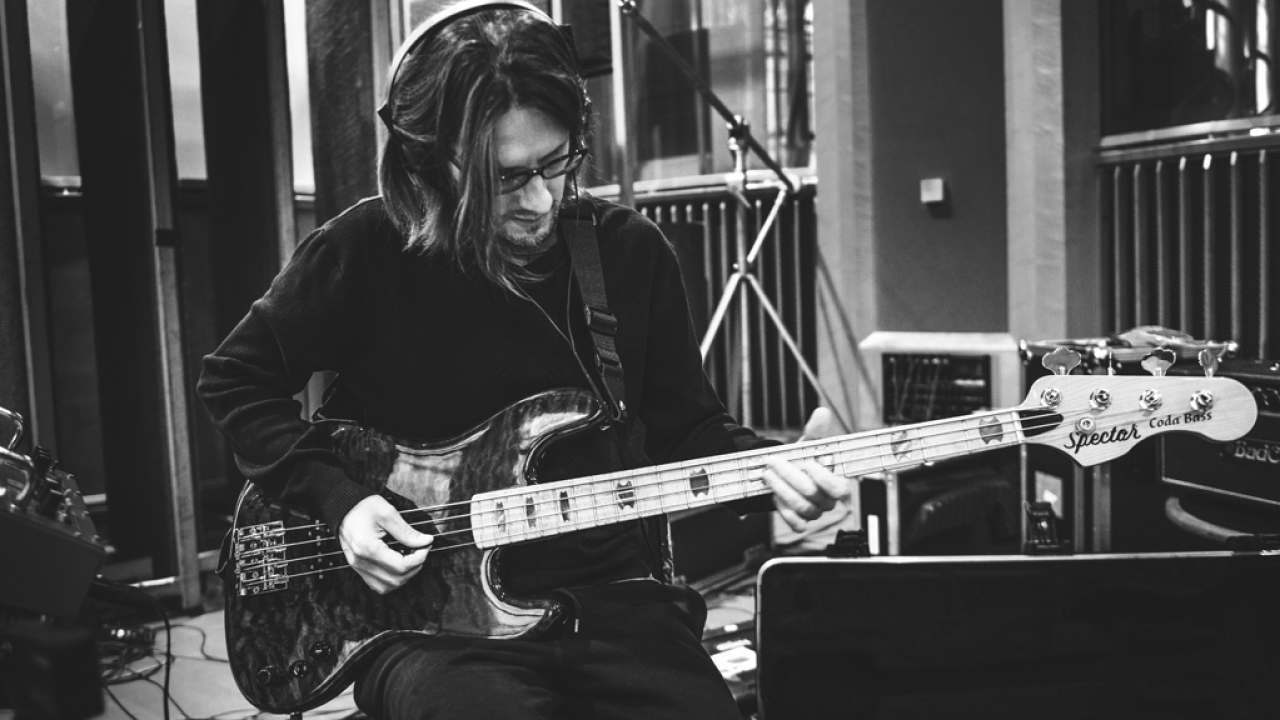From prog’s wonder-boy to the returning AOR titans, these are some of the albums 2015 has in store.
STEVEN WILSON
Enigmatic ‘auteur’ completes fourth solo LP - contemporary concept and ‘lonely Swedes’ included.
Steven Wilson never learnt to read or write music. So his vocabulary for communicating musical ideas to his band is evocative, if a tad unorthodox. Phrases like ‘the lonely Swede’ – used to describe Guthrie Govan’s mournful guitar tone on Wilson’s 2013 album The Raven That Refused To Sing – have become familiar among devotees. A lot has evolved since, but the lonely Swede liveth on.
“You can certainly expect more of that,” Wilson says cheerfully. “In fact more than the lonely Swede, we’ll have a whole group of Swedes.”
Hand. Cannot. Erase., an “eclectic” spread of 11 tracks, bears Wilson-esque tropes that have cropped up throughout his work with Porcupine Tree, Blackfield and others. Three tracks are 10-minute progressive beasts, there are select ‘pop’ moments, and electronics feed into tracks such as Perfect Life, influenced by Scottish duo Boards Of Canada. The record marks a definite shift from the 70s prog-infused personality of The Raven, which was so headstrong (not to mention warmly received) that we did wonder what he’d do next.
“In some respects it was one of the most willfully indulgent records I’ve ever made,” Wilson chuckles. “Yet it did better than some records I’d think of as more ‘commercial’. The Raven was pretty definitive in what it set out to do. It was my love letter to classic progressive rock. But ultimately I’m trying to be a contemporary artist. Every record has to feel like a distinctive musical statement, an evolution.”
Whereas The Raven revolved around Victorian ghost stories, Hand. Cannot. Erase. is “very much about the modern age”, drawing on themes of loneliness and the isolating capacity of technology. While The Raven tapped into multiple characters, this time Wilson has created one pivotal, female protagonist – sung on some tracks by Israeli star Ninet Tayeb. It was all sparked off by the documentary Dreams Of A Life, which investigated Joyce Carol Vincent, a young woman found dead in her London apartment in 2006.
“Obviously the tragedy is that she died,” Wilson says. “But the point is that she disappeared and no one noticed for about three years. That, to me, is symptomatic of the problems of modern life.”
As well as Govan, the virtuoso line-up that worked on The Raven was reassembled, allowing Wilson to dive further into an all-seeing composer role.
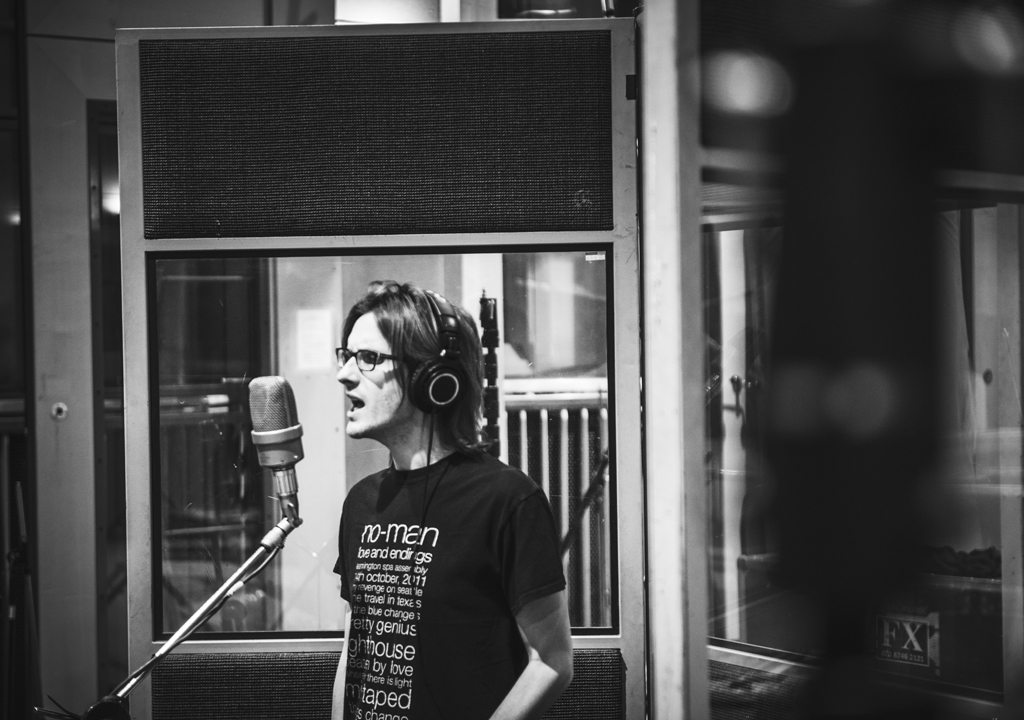
“I’ve always seen myself as a writer and producer, or, to put it pretentiously, an ‘auteur’,” he says. “I’m not saying being in a band isn’t a wonderful thing – it is. But right now I’m enjoying having the freedom to make these solo records and use different musicians.”
On one track, Transience, Wilson plays all instruments himself. On another, Routine, he hands the lead-vocal role to Ninet. The record also features a 14-piece boys’ choir, inspired by Wilson’s admiration for Kate Bush. “It’s such an extraordinary, eerie sound,” he enthuses. “It’s one of the special hallmarks of the record.”
Choristers, session legends, an Israeli heroine… It’s one hell of a team, and Wilson knows it.
“I always say my current record is the best thing I’ve ever done, and this is no exception,” he says. “I wouldn’t have settled for anything less than ‘Wow!’, because I know what these guys are capable of.”
Hand. Cannot. Erase. is due out on Kscope Records in February.
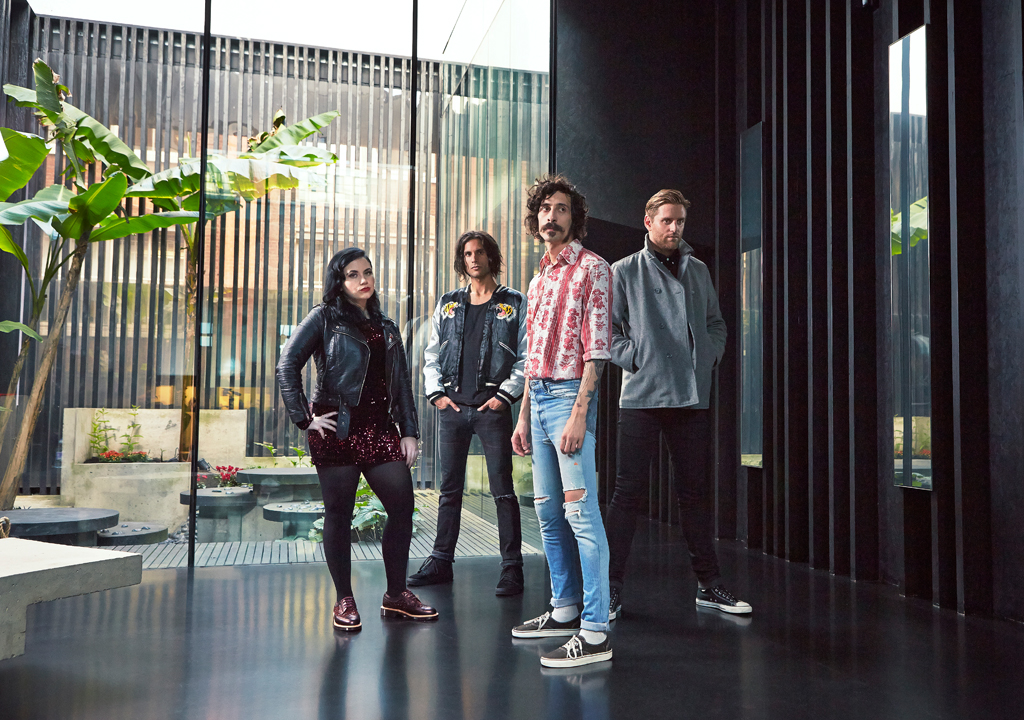
TURBOWOLF
Reaching a very weird place with the Bristolian avant-rockers.
Sometimes you have to suffer a little for your art, even when you produce anarchic rock’n’roll like Turbowolf. Co-produced by the band with Tom Dalgety (fresh from recording the Royal Blood album), Turbowolf’s second studio set, Two Hands, came together over two weeks in Monmouth’s Rockfield studios – on top of months in Dalgety’s small mixing room.
As with their self-titled debut, Turbowolf’s influences are as eclectic as their sound: a heady, punky infusion of hard, psychedelic rock’n’roll. Canadian punk duo Death From Above 1979 are a key inspiration for guitarist Andy Ghosh, while vocalist Chris Georgiadis looks to soul and Motown singers. Either way, variety is sustained, aided by guest vocalists including Do Me Bad Things’ Chantal Brown. Even the author Graham Hancock, a specialist in ancient mysteries, and known for titles such as The Sign And The Seal and, more recently, War God, came in to do some spoken-word sessions. At the catchier end of the spectrum, the single Rabbit’s Foot pounds into your skull, and sets up camp there. “With Rabbits Foot we had that groove quite early on, so we decided to keep it really pulsing and immediate,” says Ghosh. “But there’s much more elaborate, experimental stuff there as well. It’s a diverse record.”
Said elaborate stuff also draws from cinematic references, including the music of sci-fi composer John Carpenter and 1950s Western soundtracks, resulting in a swerving, psychedelic journey. “First it grabs you by the throat, and that gradually changes,” Ghosh explains. “And by the end you’re in a very weird place.”
ETA: April 2015.
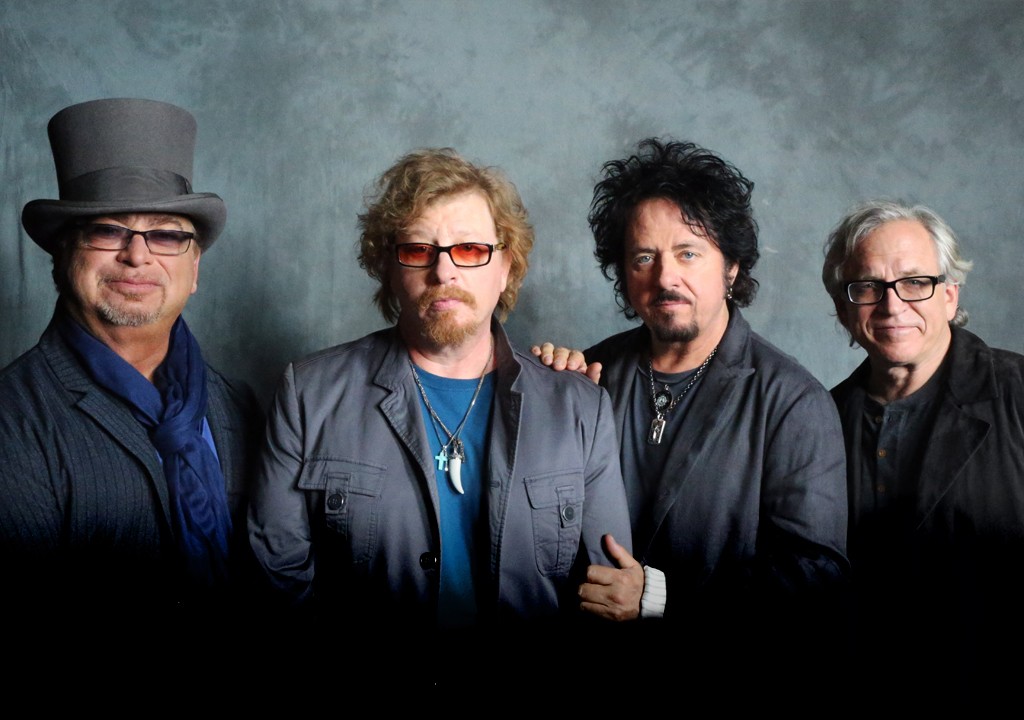
TOTO AOR kings return with third studio album in 16 years.
“It started out as ‘what the fuck’ and became ‘we really give a fuck’,” explains guitarist Steve Lukather as he enthusiastically charts the genesis of Toto XIV, the album most fans of the multimillion-selling melodic rockers believed they’d never hear. Toto recently split from their management and have since become involved in a lawsuit. “These songs were born out of litigation,” says Lukather. “But we realised that if we had to do this, then we had to do a really, really great record even if it turns out to be our swansong album.
“I don’t believe the album is dead,” he continues. “I don’t believe rock is dead. We became very motivated to make that point. We kept hearing that a bunch of old guys couldn’t make great rock albums any more. That made our blood boil. We made Toto IV [’82] when we were really pissed off. At that time we were told we had one more chance or we’d be off the label. We approached this album with the same sense of vengeance.”
The follow-up to 2006’s Falling In Between reunited Lukather with Toto stalwarts David Paich (keyboards/vocals), Steve Porcaro (keyboards/synths/vocals) and Joseph Williams (vocals), and will preface a world tour that will visit Manchester, Glasgow and London. Yet Toto’s new lease of life raises the question: what about the wasted years?
“I have no regrets that this is only our third studio album in sixteen years,” insists Lukather. “Everybody had to regroup and figure things out. When the time came we did it because we had something to prove to ourselves; Toto XIV isn’t based on money or egos or anything like that. “We’re not just a bunch of guys who can’t make music any more. We’re better than that. Some of the stuff wasn’t good enough and some great songs got thrown out. We had a lot of music in the bank, and what you’ll hear on the new record really is the best of the best.”
ETA: March 2015.
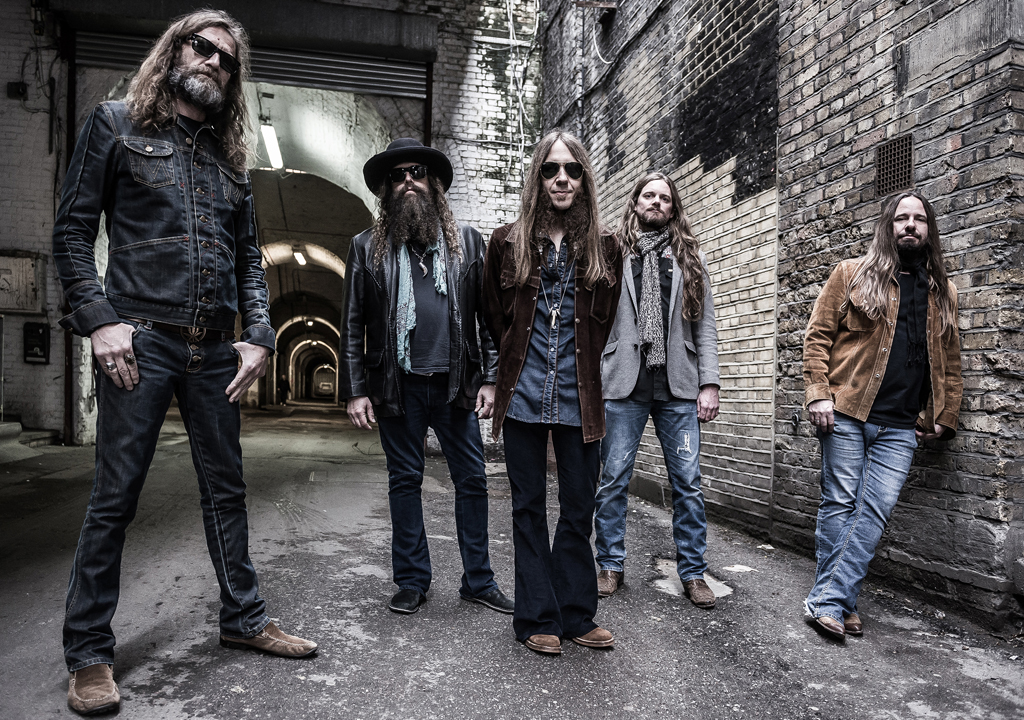
BLACKBERRY SMOKE
Brendan O’Brien-produced fourth album from sensationally side-burned southern rockers.
Blackberry Smoke recorded their second album in a week. Their third, 2012’s UK Top 30 hit The Whippoorwill, came together in five days. With producer Brendan O’Brien (Springsteen/AC/DC/Pearl Jam) – a man “passionate about capturing the moment” – working on their new Holding All The Roses, we half-wondered if it would be a 24-hour job. However, it was marginally more paced: tracked in Atlanta, Georgia for eight days and finished in three more in Los Angeles. “With Brendan, if the magic’s not there you move on to something else,” explains frontman Charlie Starr. “So even though we were really working hard, it was relaxed.”
The band’s scintillating southern rock – as welcoming of bluegrass and gospel harmonies as it is of hard ZZ Top-esque hooks – has grown richer with each album. “It’s a rock’n’roll record for sure, but there are a couple of very southern songs, there’s a couple of laid-back acoustic-type songs…” says Starr. “It’s a good album, it’s a complete album. I’m proud of it.”
Previously slowed down (in terms of studio releases) by label problems, Blackberry Smoke are now on steadier ground with Earache Records. Still, hints of that old frustration have filtered through. “I was watching the way people in the music business, artists included, sometimes seem competitive,” Starr says of the title track. “‘Holding all the roses’ means you’ve won. But, really, what do you win? Just doing it is what we love.”
ETA: February 9, 2015.
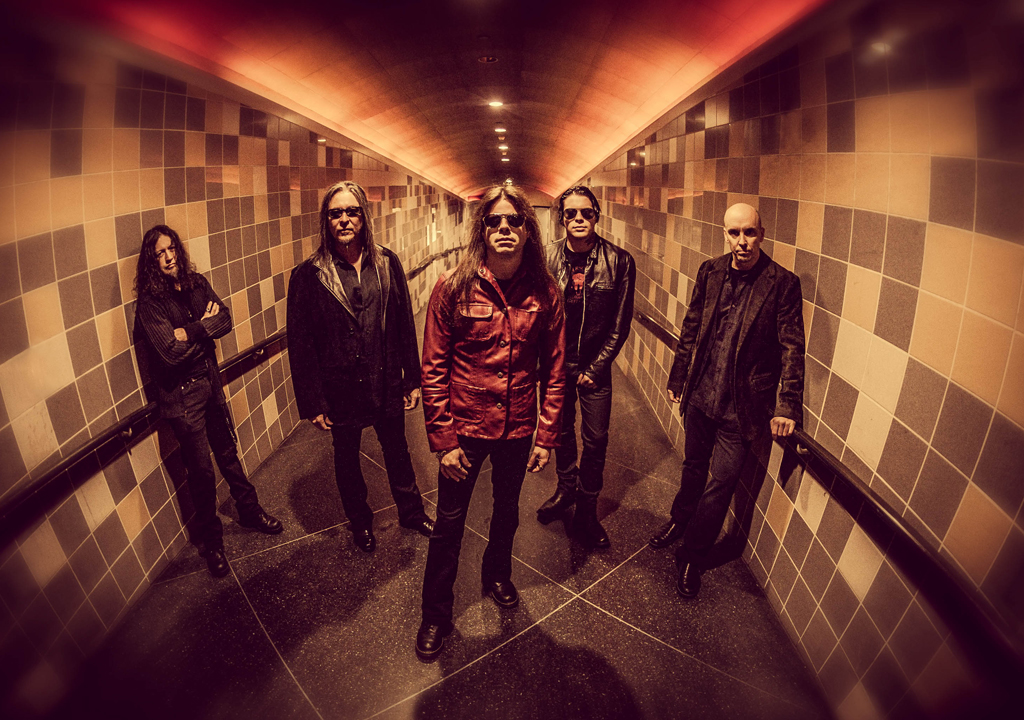
Queensrÿche
All friends and good chemistry – it’s the new-look Queensrÿche.
“It’s been a very inspiring couple of years,” says Queensrÿche drummer Scott Rockenfield. “We went through a transition and we’re very happy to move on. We feel good.”
That “transition” was the band’s split and subsequent legal battles with former vocalist Geoff Tate. Tate was replaced by ex-Crimson Glory vocalist Todd La Torre, and the new-look Queensrÿche released a self-titled album in 2013 that showed a return to form for the veteran prog-metallers. Rockenfield reckons the last record was such a hit because it channelled the band’s early sound. That’s something fans can expect to hear once again in 2015 when their 15th studio album arrives.
“The first fifteen years of our career were a really solid time for the band, and we brought that back on the last record,” says Rockenfield. “That is what we will continue to do now, and revisit why that was so special for us and bring that into the modern day. We got lucky, Todd just kind of appeared for us. Todd is a great vocalist, a great lyricist, and he’s a musician, which has added a lot of excitement and chemistry.”
Rockenfield says that work on the follow-up is well under way, and that it’s set to be a first-rate one, not least because this new-look Queensrÿche are actually friends. “Our chemistry together as bandmates is great, as is our chemistry as just people and friends. It helps us make music in a positive way.”
ETA: Late 2015.
